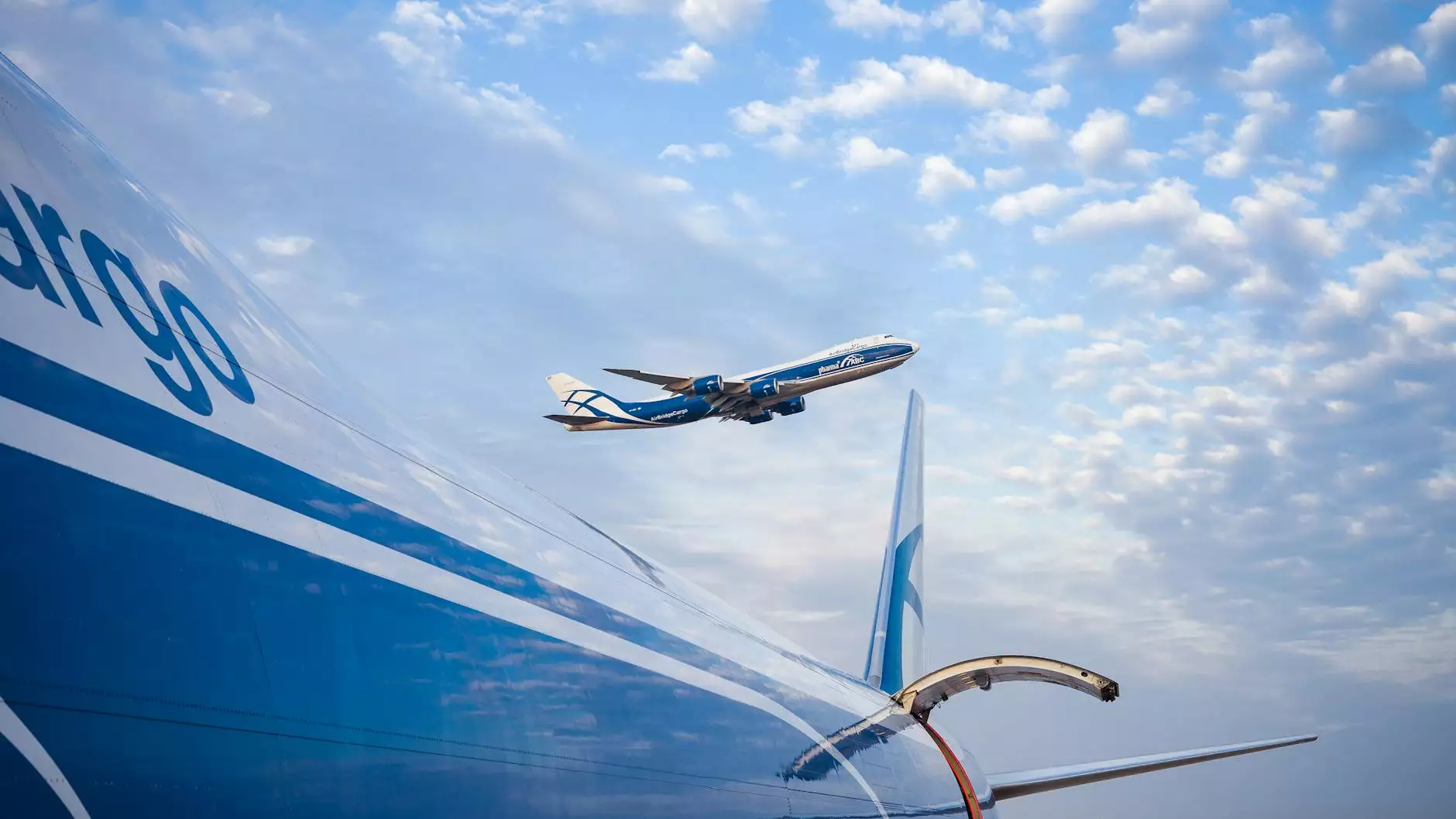Maximizing Efficiency and Reducing Costs in Air Freight Shipping

In today's fast-paced global economy, businesses face increasing pressure to deliver goods swiftly and cost-effectively. Air freight shipping has emerged as a critical component of supply chain management, especially for time-sensitive and high-value cargo. However, understanding and managing the air freight shipping cost is vital for maintaining competitiveness and profitability. This comprehensive guide explores essential aspects of air freight logistics, focusing on how to optimize operations through strategic use of shipping centers, transportation networks, and airports. Whether you are an established enterprise or a budding startup, mastering these insights will enable you to streamline your logistics, reduce expenses, and enhance customer satisfaction.
Understanding the Fundamentals of Air Freight Shipping
Air freight shipping involves transporting cargo via aircraft from one airport hub to another, often over long distances with minimal transit times. It is characterized by its speed, reliability, and ability to handle a wide range of goods, from perishable items to high-value commodities. The *air freight shipping cost* depends on numerous factors, including weight, volume, distance, delivery urgency, and specific handling requirements.
The Role of Shipping Centers in Streamlining Air Freight Logistics
Effective *shipping centers* serve as centralized nodes that facilitate the smooth flow of goods through various stages of the logistics process. They are vital in sorting, warehousing, and consolidating cargo, thereby impacting both efficiency and costs.
- Strategic Location: Shipping centers located near major airports or in logistical hubs reduce transit times and transportation costs.
- Advanced Technologies: Incorporate warehouse management systems (WMS) and real-time tracking to optimize sorting and inventory management.
- Consolidation Opportunities: Combining shipments reduces the number of trips and maximizes payload efficiency, lowering the *air freight shipping cost*.
- Customs and Documentation Support: Ensuring compliance and reducing delays at borders and customs checks.
By investing in well-equipped shipping centers, businesses can significantly enhance their supply chain resilience and lower operational costs, directly impacting the overall *air freight shipping cost*.
Transportation Networks: The Backbone of Efficient Air Freight Shipping
A robust transportation network connects shipping centers with airports and end destinations. An efficient network minimizes transit times, reduces handling costs, and ensures timely deliveries.
Optimizing transportation involves:
- Multi-Modal Logistics: Combining air freight with road, rail, or sea transport to optimize routes and costs.
- Route Planning: Leveraging advanced software to determine the most efficient paths for cargo movement.
- Vehicle Fleet Management: Maintaining reliable vehicles and timely scheduling to avoid delays and reduce operational expenses.
- Real-Time Monitoring: Using IoT devices and GPS tracking to oversee transport conditions, prevent theft, and manage disruptions proactively.
By refining transportation strategies, companies can not only lower the *air freight shipping cost* but also improve overall service quality, ensuring cargo reaches destinations faster and more reliably.
Airports: Critical Nodes for Cost-Effective Air Freight Shipping
Airports are the dynamic centers where cargo is exchanged, sorted, and dispatched to final destinations. Their operational efficiency directly influences the *air freight shipping cost* and delivery timelines.
Key factors that influence airport efficiency include:
- Location and Connectivity: Major international airports with extensive route options facilitate faster transit and lower costs.
- Cargo Handling Capacity: Larger facilities with advanced handling equipment can process higher volumes rapidly, reducing delays and costs.
- Customs and Security Protocols: Streamlined procedures minimize waiting times and bureaucratic expenses.
- Partnerships with Logistics Providers: Collaborations with freight forwarders and ground service providers facilitate smoother operations.
Choosing the right airports and optimizing their utilization are crucial steps for mitigating *air freight shipping cost*—especially when dealing with high-value or delicate cargo.
Strategies to Reduce Air Freight Shipping Cost
Effective management of *air freight shipping cost* requires a combination of tactical considerations and strategic planning. Here are some proven methods:
1. Volume and Payload Optimization
Maximize payload efficiency by consolidating shipments, choosing appropriate packaging, and leveraging less-than-truckload (LTL) freight options where possible. Volume discounts or freight forwarding agreements can significantly reduce per-unit costs.
2. Flexible Scheduling and Routing
Adapting shipment schedules to off-peak hours and utilizing alternative routes can decrease congestion-related delays and costs.
3. Use of Technology and Data Analytics
Implementing advanced software solutions for route optimization, demand forecasting, and real-time tracking allows informed decision-making that minimizes unnecessary expenses.
4. Negotiating Strong Partnerships
Building strong relationships with carriers, airports, and service providers can secure preferential rates and priority handling, reducing overall *air freight shipping cost*.
5. Continuous Monitoring and Improvement
Regular auditing of freight costs, analyzing performance metrics, and adapting strategies are vital for ongoing cost reduction.
The Future of Air Freight Shipping: Innovations and Trends
As technology advances, the air freight industry is poised for transformative changes that can further reduce *air freight shipping cost* and enhance service quality.
- Automation and Robotics: Automating sorting and handling processes to improve throughput and accuracy.
- Artificial Intelligence: Leveraging AI for predictive analytics, demand forecasting, and dynamic pricing models.
- Blockchain Technology: Enhancing transparency, security, and efficiency in documentation and payment processes.
- Sustainable Practices: Investing in eco-friendly aircraft and operations to reduce carbon footprint and regulatory costs.
Integration of these innovations promises to make air freight shipping more cost-effective, reliable, and environmentally sustainable, benefitting both businesses and consumers.
Partnering with cargobooking.aero for Optimized Air Freight Solutions
For businesses seeking to master the nuances of *air freight shipping cost*, partnering with a reliable logistics platform like cargobooking.aero is a strategic move. With expertise spanning shipping centers, transportation, and airports, cargobooking.aero offers a comprehensive suite of services designed to:
- Streamline logistics processes to reduce unnecessary expenses.
- Offer transparent pricing to help plan budgets accurately.
- Provide access to extensive networks across global airports and shipping hubs.
- Leverage cutting-edge technology for real-time tracking and optimization.
- Ensure compliance with international shipping regulations to avoid costly delays.
By collaborating with cargobooking.aero, companies can unlock significant cost savings, enhance operational efficiency, and ensure rapid delivery timelines—crucial factors in today's competitive marketplace.
Conclusion: Embracing Innovation and Strategic Planning in Air Freight Shipping
Mastering the complexities of *air freight shipping cost* is essential for businesses aiming to reduce expenses while maintaining high service standards. Through strategic utilization of shipping centers, optimized transportation networks, and choosing the right airport hubs, companies can facilitate faster, more reliable, and cost-effective deliveries.
Moreover, embracing technological advancements and fostering strong industry partnerships will be pivotal in navigating future challenges and opportunities in the air cargo industry. Remember, the key to success lies in continuous refinement, data-driven decision-making, and strategic innovation.
Partnering with experienced logistics providers like cargobooking.aero can significantly empower your supply chain, delivering tangible savings and operational excellence. Ultimately, a well-planned, technologically supported approach can transform your air freight operations into a competitive advantage, ensuring sustainable growth in the dynamic global marketplace.









